Half of Team Nicaragua was heading to Siuna to meet with COOPSIUNA, while half was heading to Mataglapa to meet with Sebaco. Both teams have had an amazing experience thus far and are constantly learning about the farming process for different crops, as well as the ins and outs of these two cooperatives. We’d like to share a little about both experiences…
Team Siuna
Tuesday Morning: Time to head north to Siuna! Brendan, Maurice, and Nicole headed off to the Managua national airport (right next to the international airport) to take an hour flight up north to Siuna. We were excited to see parts of the Nicaraguan countryside from our window seats, and even more excited to land in Siuna and meet our CRS liaison!
We made it to Siuna and dropped our bags off before heading to the CRS/COOPSIUNA offices a few blocks down from the Siuna airport. We were able to meet with the cooperative President, Treasurer, Financial Advisor, Operations Director, and a few members of the Board of Directors. They were very helpful with their explanation of the cooperative’s origin, its’ current state of operations, and the goals for the future. After our day of meetings, our CRS liaison, Jairo Wong, took us on a tour of Siuna and explained a little of the town’s history before we went to grab some dinner.
Wednesday: We had planned to meet with three different farmers on Wednesday, as well as see the cooperative’s processing plant for cacao and pepper oil. Our first farm visit took us to Justino Armas’ farm. We had a little bit of a hike to get to his farm, including a short boat ride to get across the river. You can see the boat ride first-hand as Brendan took a short video on his journey across the river. Justino spent time explaining his farm, the cacao planting, care, and harvesting process, and his ideas for the future of his farm.
Thursday: We were able to meet with more farmers on Thursday who explained the pepper oil harvesting process, as well as more cacao farmers, including a farmer who currently is working with agriculture studies students who splice cacao plants to ensure good genetic qualities continue.
Friday: We fly back to Managua and then drive south to Granada to meet up with our teammates who were in Matagalpa for the week! We can’t wait to hear about their experience and share that with you shortly!
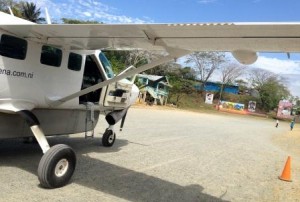
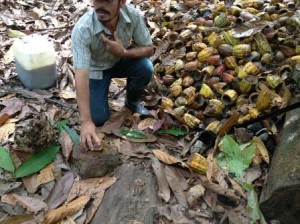
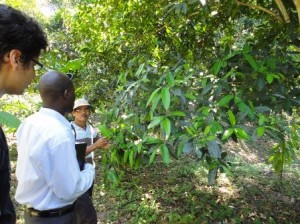
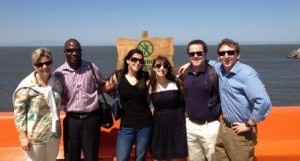
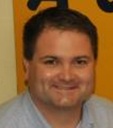 Name: Jonathan Flatley
Name: Jonathan Flatley Name: Andrea Caldwell
Name: Andrea Caldwell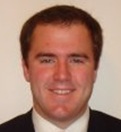 Name: David Lamb
Name: David Lamb Name: Brendan Kelly
Name: Brendan Kelly Name: Maurice Sikenyi
Name: Maurice Sikenyi Name: Nicole Gorski
Name: Nicole Gorski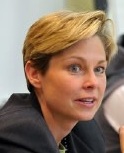 Faculty Advisor: Viva Bartkus
Faculty Advisor: Viva Bartkus